In today’s fast-paced and ever-evolving business landscape, understanding ethics has never been more crucial. I’ve seen firsthand how ethical dilemmas can impact decision-making and organizational culture. That’s why I’m excited to dive into [author] business ethics course, a program designed to equip professionals with the tools they need to navigate complex moral challenges in the workplace.
This course goes beyond theory, offering practical insights and real-world applications that resonate with anyone looking to foster integrity in their business practices. Whether you’re a seasoned executive or just starting out, [author]’s approach to business ethics can transform how you think about your role in creating a responsible and sustainable business environment. Let’s explore how this course can empower you to make ethical decisions that benefit not just your organization but society as a whole.
Key Takeaways
- Importance of Business Ethics: Understanding ethics is crucial for decision-making and shaping organizational culture in today’s business environment.
- Practical Learning: The course emphasizes practical applications, engaging participants with real-world case studies to reinforce ethical principles.
- Comprehensive Course Structure: Covers essential themes including corporate responsibility, ethical decision-making frameworks, and the implications of ethical misconduct, suitable for professionals at all levels.
- Interactive Teaching Methods: Employs interactive learning approaches, such as group discussions and role-playing exercises, to promote critical thinking and collaborative learning.
- Skill Development: Participants gain vital skills in analytical thinking, moral reasoning, and communication, preparing them for effective ethical decision-making in their careers.
- Positive Career Impact: Completing the course enhances career prospects by improving confidence in tackling ethical challenges and promoting a culture of integrity within organizations.
[Author] Business Ethics Course
[Author] Business Ethics Course focuses on essential principles for navigating ethical challenges in the workplace. The course covers various topics including corporate responsibility, ethical decision-making frameworks, and the role of corporate governance.
Each module is designed to engage participants through real-world case studies and interactive discussions, fostering an environment for critical thinking and analysis. Participants will explore concepts such as stakeholder theory, moral philosophy, and the implications of ethical misconduct.
The course structure accommodates professionals at all levels, enabling tailored learning experiences. It encourages active participation and application of ethical theories to everyday business scenarios. Through practical exercises, I gain insights into improving organizational culture and promoting ethical behavior.
The program not only aims to enhance ethical awareness but also provides actionable strategies for instilling integrity within organizations. By completing the course, I’m empowered to influence positive change and uphold responsible business practices.
Course Structure
The course structure consists of carefully designed modules that address critical aspects of business ethics. Each component promotes an engaging learning environment, ensuring participants gain practical knowledge applicable to real-world situations.
Modules and Topics Covered
- Corporate Responsibility: I explore the core principles of corporate responsibility and its relevance to modern business practices.
- Ethical Decision-Making Frameworks: I analyze various frameworks that support ethical decision-making processes, enabling effective responses to dilemmas.
- Corporate Governance: I examine the role of corporate governance in fostering ethical oversight and accountability within organizations.
- Stakeholder Theory: I discuss stakeholder theory, emphasizing the importance of considering all parties impacted by business decisions.
- Moral Philosophy: I introduce foundational concepts of moral philosophy that underpin ethical reasoning in business contexts.
- Ethical Misconduct Implications: I address the consequences of ethical misconduct, highlighting case studies that showcase failures and lessons learned.
- Enhance Ethical Awareness: I aim to raise participants’ awareness of ethical issues prevalent in today’s business landscape.
- Develop Analytical Skills: I focus on honing critical thinking skills necessary for evaluating complex ethical scenarios.
- Promote Integrity: I strive to equip professionals with strategies to instill and uphold integrity within their organizations.
- Encourage Active Participation: I foster an environment that encourages discussion, collaboration, and interaction among participants, enhancing the learning experience.
- Prepare for Real-World Applications: I emphasize practical exercises that allow participants to apply concepts directly to their work environments, ensuring relevance and immediate utility.
Teaching Methodology
The teaching methodology of [author] business ethics course prioritizes engagement and practical application. It fosters an environment where participants actively engage with concepts and tools necessary for ethical decision-making.
Interactive Learning Approaches
Interactive learning approaches dominate the course, ensuring participants actively contribute to discussions and activities. Group activities stimulate collaboration and critical thinking. Role-playing exercises allow participants to experience ethical dilemmas in simulated environments, enhancing their decision-making skills. These approaches encourage diverse perspectives, fostering an understanding of the complexities surrounding business ethics.
Case Studies and Real-World Applications
Case studies and real-world applications form a cornerstone of the curriculum. Participants analyze scenarios that reflect common ethical challenges faced in various industries. This analysis helps illustrate the practical implications of ethical theories and principles in everyday business decisions. Each case study brings attention to the consequences of ethical misconduct, reinforcing the importance of integrity within organizations. Through these exercises, participants learn to apply ethical frameworks effectively, preparing them for challenges they may encounter in their professional environments.
Student Experience
Participants frequently express satisfaction with the course, reporting transformative impacts on their understanding of business ethics. The interactive format cultivates an engaging learning environment that enhances retention and application of ethical principles.
Feedback and Testimonials
Feedback highlights the clarity and relevance of the course material. Participants mention:
- Real-World Application: Many appreciate the focus on practical ethical dilemmas, noting how case studies resonate with their experiences.
- Enhanced Critical Thinking: Students comment on improved analytical skills, emphasizing confidence in approaching ethical challenges.
- Collaborative Learning: Numerous testimonials praise the interactive group discussions, fostering connection and shared learning among peers.
Challenges Faced by Students
Students encounter several challenges throughout the course, including:
- Conceptual Complexity: Some find understanding intricate ethical theories initially daunting, needing extra resources for clarity.
- Diverse Perspectives: Navigating varying viewpoints during discussions can create tension, requiring patience and openness.
- Applying Theory to Practice: Translating theoretical knowledge into real-world decisions poses difficulties, particularly in high-pressure scenarios.
These experiences contribute to a richer understanding of business ethics, reinforcing the importance of continuous learning and adaptation in the professional landscape.
Outcomes and Benefits
The business ethics course by [author] delivers significant outcomes and benefits that enhance participants’ professional and ethical competencies. This section outlines the key skills developed and the impact on future careers.
Skills Developed
Participants acquire essential skills for ethical decision-making, including analytical thinking, moral reasoning, and stakeholder analysis. I learn to dissect complex ethical dilemmas, applying relevant frameworks and theories to reach practical solutions. Participants improve their communication skills, especially when discussing ethical issues and presenting arguments clearly. Critical thinking fosters the ability to evaluate diverse perspectives, encouraging informed discussions about ethical challenges. Moreover, teamwork and collaboration enhance through group activities, where participants practice negotiating ethical solutions in various scenarios.
Impact on Future Career
The business ethics course significantly influences future career prospects. Participants emerge equipped with the ability to navigate ethical dilemmas successfully, which is increasingly valued in today’s corporate environment. I gain confidence in addressing ethical challenges, resulting in greater decision-making authority within organizations. The practical insights and skills acquired create a foundation for leadership roles, making me an asset to potential employers. By promoting a culture of integrity, I contribute to my organization’s reputation and success, enhancing my professional networks and career progression.
The investment in ethical training leads to a more responsible business approach, readying participants for challenges in dynamic market landscapes.
Ethics Course
Taking [author] business ethics course has been a transformative experience for many professionals. It equips us with the necessary tools to navigate complex ethical dilemmas in our workplaces. The focus on practical applications and real-world case studies deepens our understanding of ethical principles and their relevance.
I’ve seen firsthand how this course fosters a culture of integrity within organizations. By enhancing our analytical skills and moral reasoning, we become more confident in addressing ethical challenges. This isn’t just about personal growth; it’s about creating positive change in our professional environments.
As we continue to face evolving ethical challenges, the insights gained from this course will undoubtedly empower us to make informed decisions that benefit both our organizations and society. Investing in ethical training is a step toward a more responsible and successful business future.

![[author] business ethics course](https://westbrightlaw.com/wp-content/uploads/2024/11/1aca9836-5672-4488-abf0-2390cc1124ca_r-evfA-Thkgba12IKQ3wF-1024x585.jpeg)

![[author] business ethics for managers and leaders course](https://westbrightlaw.com/wp-content/uploads/2024/11/43692c61-2758-4ecf-870e-67b6beea24b5_y91iE6L8oWa_1dxBEeN2l-1024x585.jpeg)